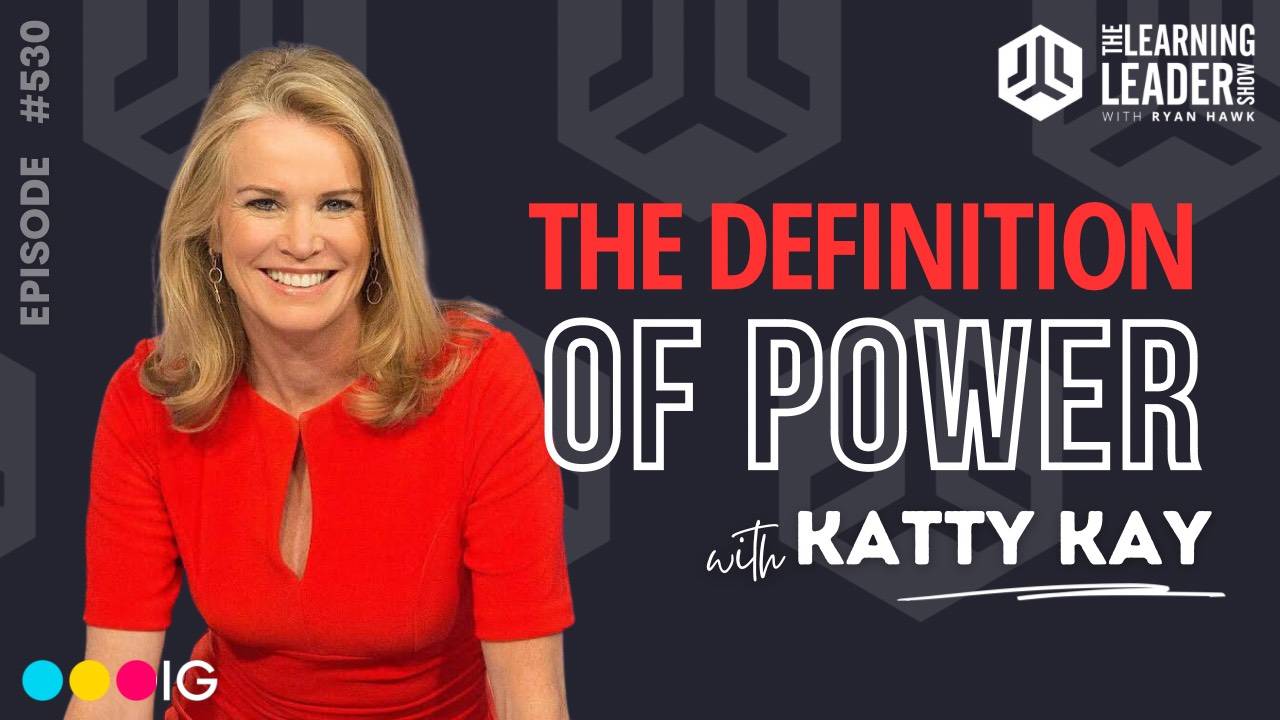Katty Kay is a US correspondent for the BBC and a regular contributor on MSNBC. Katty grew up in the Middle East, where her father was a British diplomat. She studied French and Italian at Oxford University and worked as a foreign correspondent in Africa and Japan before moving to The US in 1996. Katty is the best-selling author of many books. Her latest is called “The Power Code.”
WATCH this conversation on YouTube. And SUBSCRIBE!
Read my book, The Pursuit Of Excellence — See why Patrick Lencioni said “This book is an absolute must-read if you care to live an excellent life.”
FORBES called WELCOME TO MANAGEMENT, “the best leadership book of 2020.”
Be part of “Mindful Monday” — Text Hawk to 66866 Subscribe on iTunes or Stitcher Radio
The Learning Leader Show
- The definition of power – The ability to exercise one’s will, influence others, and effect change.
- The ability to exercise our will—More Joy. Influencing (not controlling) others—Less Ego. Effecting change—Maximum Impact.
- Redefining Power – In the past, it seems to be about dominance. About something you hold over something (people, or resources). Instead, we want it to be used to effect positive change. Let’s use power for good.
- Promoting on promise versus promoting on performance. The research states that more men are promoted on promise than women. And women are mostly promoted based on performance. As leaders, let’s think about promise versus performance. As Frank Slootman said in a previous conversation, let’s hire people “Ahead of their curve.
- Most women today don’t want power. The path to getting it, as it exists today, involves too many sacrifices, and power itself is unappealing, full of egos and competition. Women have all the skills, but we’d rather opt out.
- Women and men don’t define power in the same way. Men think of power as a finite commodity, part of a hierarchical, zero-sum game that involves having power over people. Women aren’t competitive about power, and we focus more on the end result, the change we can affect with power. It’s the difference between power over and power to.
- Does power corrupt? Not in the hands of women. Researchers have found that women are the exception to the rule that powerful people are less empathetic–women tend to maintain their connection to others, to a ground-level reality, as we rise through the ranks–a huge leadership advantage.
- Power fuels action. Neuroscientists are discovering the remarkable things power does to our brains. It can liberate its possessors, across their lives, and even create an ability to act more authentically. That offers big rewards for women and needs to become a selling point.
- Women will never get power outside the home until our marriages look less like the 1950s. Our marriages aren’t keeping up with society or our careers. A woman with a job does more housework than a man who doesn’t work. In couples where the wife earns more than the husband, they lie about it on the US census form.
- Men are stuck in a box they don’t want to be in. They are pushed to play the outdated role of primary breadwinner, which is why the number of stay-at-home dads has barely grown in a quarter of a century. But increasingly men realize the zero-sum power formula isn’t working for them either. A more collaborative, more humane approach to power would benefit everyone.
- Apply to be part of my Leadership Circle
- Read: The Pursuit Of Excellence
- Read: WELCOME TO MANAGEMENT
- Be part of “Mindful Monday” — Text HAWK to 66866
- Read: The Power Code
- Connect with me on LinkedIn
- Join our Facebook Group: The Learning Leader Community
- To Follow Me on Twitter: @RyanHawk12
Time Stamps
More Learning:
Episode 078: Kat Cole – From Hooters Waitress To President of Cinnabon
Episode 216: Jim Collins — How To Go From Good To Great
Episode #300: AJ & Keith Hawk – How To Instill Work Ethic & Curiosity In Your Children
Episode #303: General Stanley McChrystal – The New Definition Of Leadership


Leave A Comment